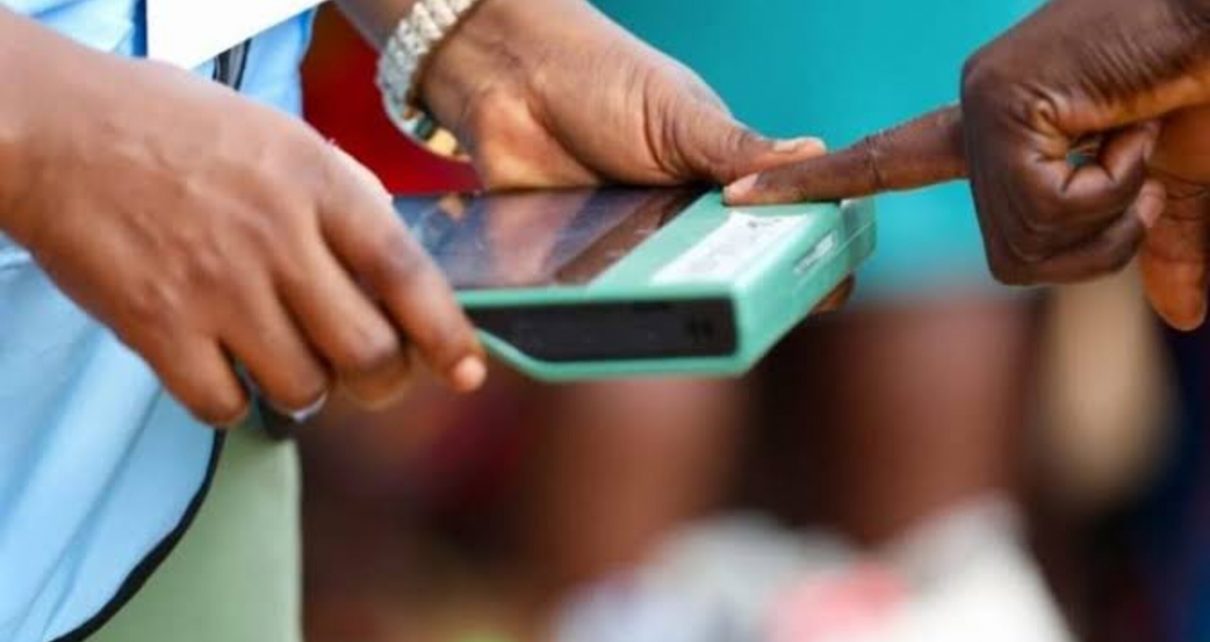About 170,000 polling unit results from the February 25 presidential and National Assembly elections have been posted on the Independent National Electoral Commission’s (INEC) Result Viewing Portal (IReV), it was announced on Sunday.
The Bimodal Voter Registration Systems (BVAS) reconfiguration, which was announced by the Commission, will be finished by Tuesday in time for the March 18 gubernatorial and state assembly elections.
“As at the last time, over 170,000 of those results have been uploaded,” INEC National Commissioner, Festus Okoye, told Seun Okinbaloye on Channels Television’s Sunday Politics.
“As you are aware, we are reconfiguring the BVAS for purposes of the governorship and state assembly elections, and any BVAS that was used for the presidential and National Assembly elections that do not push to the accreditation backend, the data relating to the conduct of the presidential and National Assembly elections will not be reconfigured.
“In fact, the BVAS will not allow itself to be reconfigured or reset if the entire data is not pushed to the accreditation backend.
“I’m sure that by Tuesday when we hope to complete the resettling of the BVAS for the purposes of the governorship and state assembly elections, the results in all the places where elections were conducted would have been pushed to the accreditation backend.”
Every Nigerian, according to Okoye, has a constitutional and legal right to demonstrate. But he said that no political party would be permitted to examine the BVAS’s brain or the biometrics of voters.
He emphasised that INEC is the body that regulates political parties and that the commission will not deviate from its primary duty in favour of retaliating political parties.
According to him, only the people who filed a lawsuit are covered by the court’s ruling that allowed voters to cast ballots using their temporary voter cards.
The INEC commissioner also cited political parties as the cause of the poor voter participation at the most recent election by making polling places “inaccessible” to voters.
He stated that INEC would use some “valuable lessons” it had acquired from the presidential and national assembly elections to the gubernatorial and state assembly elections.
Prior to the March 18 elections, he claimed that serious efforts were being made to address issues with the IReV portal. He also said that the commission’s ICT department was aware of what to do in the event that there were problems with the uploading of polling unit results to the IReV portal.
According to him, political parties used more polling unit agents than the Commission did, and they kept track of their results on a per-polling-unit basis.
The commissioner of INEC stated, “The Electoral Act 2022 makes explicit that every registered political party in Nigeria has the right to send agents to every polling place in conjunction with their candidates. A total of 176,588 polling agents were deployed by the PDP as a political party. Total poll workers employed by the Labour Party were 134,874. The APC deployed a total of 176,223, compared to 176,200 for the NNPP.
“The commission deployed to 176,666 polling units. So, the political parties deployed more agents to the polling units than the number of polling units that opened. What that means is that each political party got a copy of Form EC 8 which is the polling unit result sheet which is the result sheet that is uploaded into the IReV portal.”
The electoral board has implemented two new technologies, the IReV and the BVAS, for the accreditation and electronic transmission of votes in this year’s elections.
Opposition parties bitterly lamented that INEC employees at the polling places were unable to electronically transmit election results to the IReV as required by Section 60 of the Electoral Act 2022 during the presidential and National Assembly elections. The parties protested the hand tallying of the results and the declaration of the election’s winners.
The electoral body made a commitment to address the issues, but opposition parties have filed a lawsuit to contest Bola Tinubu of the All Progressives Congress (APC), who was declared the winner and the next president of Nigeria, before the court.
In Nigeria’s political capital of Abuja, a Court of Appeal last week gave INEC permission to modify the BVAS for the gubernatorial and state assembly elections.
In order to prevent INEC from altering the data in the BVAS machines until the proper examination is carried out and certified true copies (CTC) of them are issued, the Labour Party (LP) and its presidential candidate Peter Obi requested a court order.
However a three-member panel of the court of appeal, chaired by Justice Joseph Ikyegh, accepted INEC’s plea to modify the BVAS computers on Wednesday on the grounds that the data on them would be uploaded into a back-end server that could not be tampered with.
In order to allow for the BVAS machines to be reconfigured, the commission later decided to postpone the gubernatorial and state assembly elections by one week, from March 11 to March 18.


